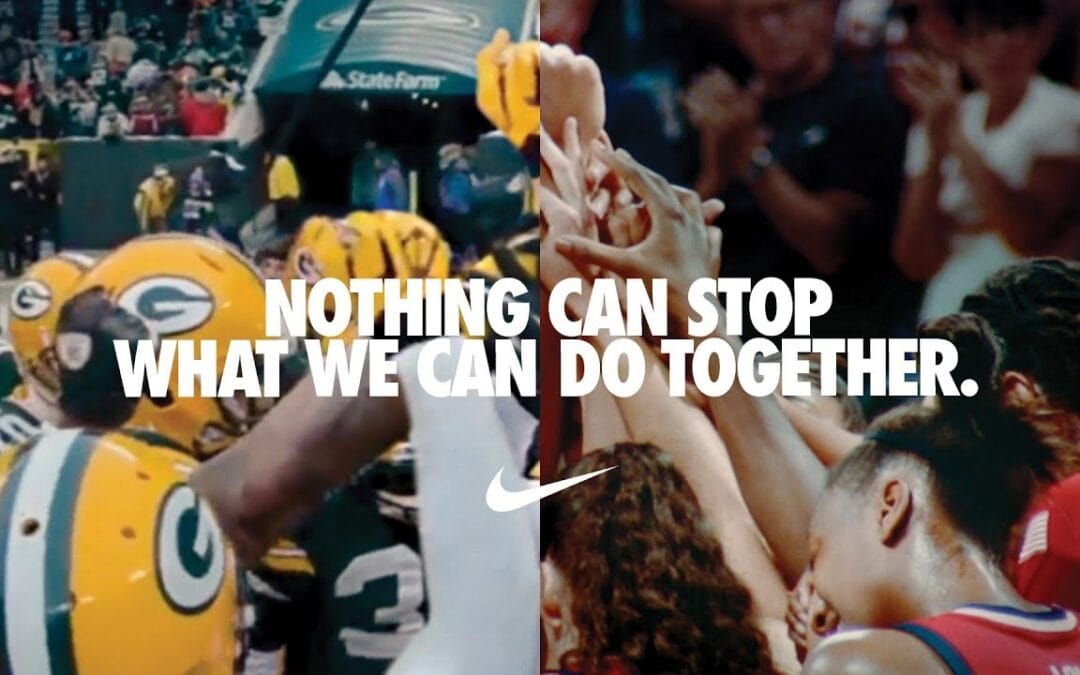Credit: Originally featured in The Drum
Thomas Kolster literally wrote the book on brand purpose. Despite being one of its biggest advocates, however, he’s having a change of heart after seeing one too many marketers mistake preaching for purpose. Here, he urges brands to stop pitching themselves as heroes and help enable better lives instead.
Not a day passes in adland where I don’t have to reach out for the emotional, do-good, aspirational, moon-landing-narrated purpose puke bucket. Sorry, maybe it’s partly my fault – after all, a few years ago I wrote a book called Goodvertising. But hey, maybe it’s not-too-goodvertising any more. Let’s consider the latest candidate: Nike.
Oh, Nike… As the narrator preaches, “You can’t stop sport, you can’t stop us,” my only wish is I could stop yet another brand from running headlong into what I call ’The Hero Trap’ (and which just so happens to be the title of my latest book). Yes, I used to be a big believer in purpose, but hear me out – we need a new approach.
Haven’t we learned anything from the earlier failed attempts of branding? Claiming you’re the best doesn’t make you the best. It’s no different in the do-good space. If you claim you’re super(wo)man, why not put on your red hero’s cape, take a step out of the office window and see how far you’ll fly? You’re selling soft drinks, you’re selling running shoes or, hey, you might even be selling toilet paper. It’s megalomaniacal to believe you are a hero. But that doesn’t need to stop you from making a meaningful and much-needed difference in my life.
Let me ask you this one question. What brand has changed your life? Made you smarter? Made you see things from a different perspective? Made you run further? Made you fight your own biases?
Who can you help people become?
Most brands didn’t become irrelevant because they forgot their ’why’. They became irrelevant because they forgot who they were there for. We are our own biggest barriers to the change we want to see in our lives, and this is where brands have a truly meaningful role to play. Every brand can claim to be diverse, but the outcome I can feel and appreciate is a brand that has helped me overcome some of my own biases, my own boundaries, or given me the confidence to strive for a better life.
Purpose has become what long-lasting taste was to chewing gum in the 90s: meaningless advertising lingo. People no longer buy what you make or why you make it, but who you can help them become. Think about it: you are not buying a pair of running shoes or, for that matter, the running company’s higher purpose, you are buying how that brand can help you run those extra miles. Nike, you’re doing a disservice to your truest mission: making me go further. Remember the asterisk? “*If you have a body, you are an athlete.“ Why suddenly change course?
It’s about my life, my values, my dreams
We can only create change if we succeed in changing people first. When researching The Hero Trap, I commissioned a study comparing well-known, purposeful commercials like Budweiser’s ’Wind Never Felt Better’ with transformational commercials like Always’s famous ’Like A Girl’. The findings were clear: people are 29.5% more motivated to act on transformational messaging.
Maybe it’s actually not so surprising that the companies or leaders that motivate us towards change are more successful than those that view themselves as the agents of change. People were even willing to pay a premium price for those transformational brands.
You have to ask a different question if you want to move people from intent to action. When you ask, ’Who can you help people become?’ your focus becomes laser-sharp on what pushes the needle. As a brand you can teach people, give them the tools, you can hold their hand – but, at the end of the day, it’s up to you and me.
I wish brands would stop the crusades and chest-thumping. Purpose shouldn’t be a shouting match to show what a brand cares the most about or sacrifices the most for, like a Nike Colin Kaepernick commercial gone nuclear (“Believe in something, even if it means sacrificing everything“).
Instead, I believe a brand should trust and nurture fellow citizens, human beings, colleagues, mothers and fathers to bring about change. We live in such divided times, we definitely don’t need another politician or sports apparel company to tell us we’re wrong (or right) but rather someone who can help us in our constant struggle to live. Don’t talk, just do it!
Thomas Kolster is a marketing activist, author and advisor. His new book, The Hero Trap, is available now.

